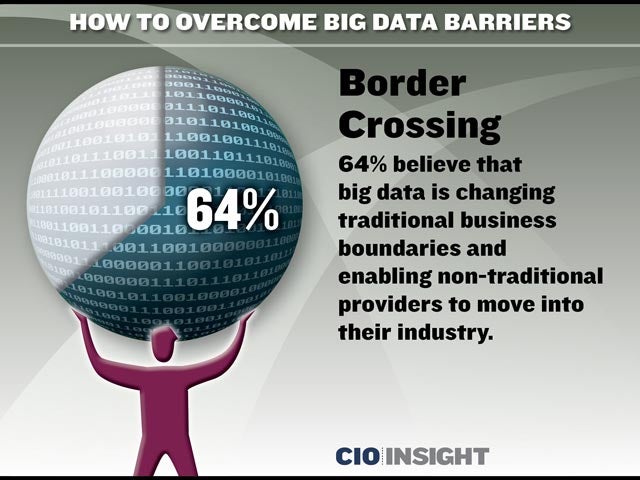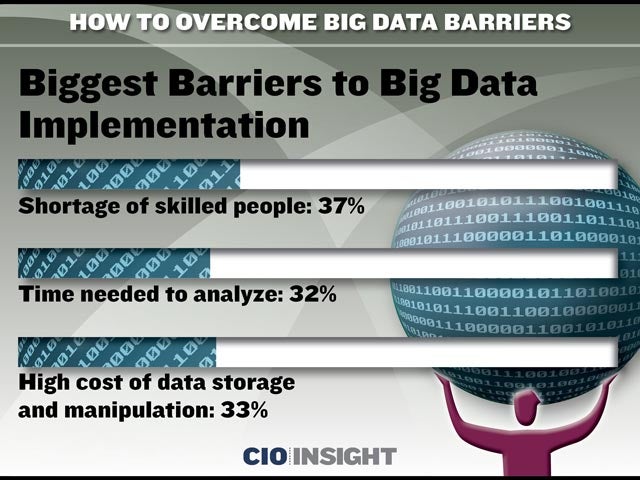
How to Overcome Big Data Barriers
 Deciding Factor
Deciding Factor
65% of global C-suite level execs and senior decision-makers surveyed said that their organizations will risk becoming irrelevant or uncompetitive if they do not embrace big data.
 Budget Allocation
Budget Allocation
56% anticipate higher investment in big data over the next three years, and 15% said this increase will be significant.
 Developmental Delay, Part I
Developmental Delay, Part I
45% said the current development cycle for new analytics insights takes too long, and doesn’t match their business requirements.
 Developmental Delay, Part II
Developmental Delay, Part II
52% said the IT development process causes constraints with respect to arriving at insights more quickly.
 Ill-Equipped
Ill-Equipped
47% said their IT systems are not optimized to enable business decision-makers in all departments to effectively do their jobs.
 Border Crossing
Border Crossing
64% believe that big data is changing traditional business boundaries and enabling non-traditional providers to move into their industry.
 Nimble Newcomers
Nimble Newcomers
53% said their organizations face increased competition from data enabled start-ups.
 Strategic Overhaul
Strategic Overhaul
Three-quarters said their company is either restructuring/reorganizing to exploit big data opportunities, or is planning to do so.
 Repositioning Plan
Repositioning Plan
63% said their organization is either introducing new C-level roles to exploit big data opportunities, or is planning to do so.
 Biggest Barriers to Big Data Implementation
Biggest Barriers to Big Data Implementation
Shortage of skilled people: 37%, Time needed to analyze: 32%, High cost of data storage and manipulation: 33%